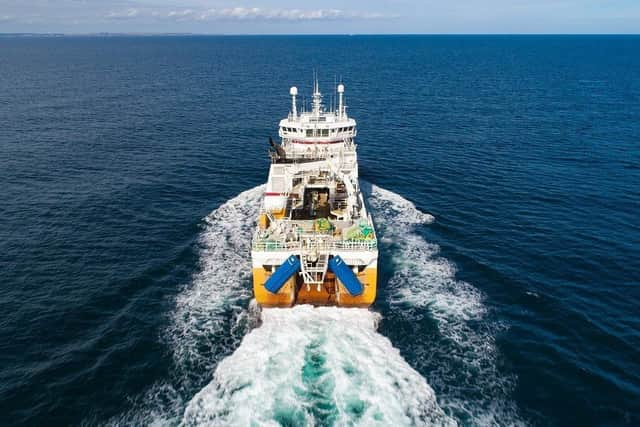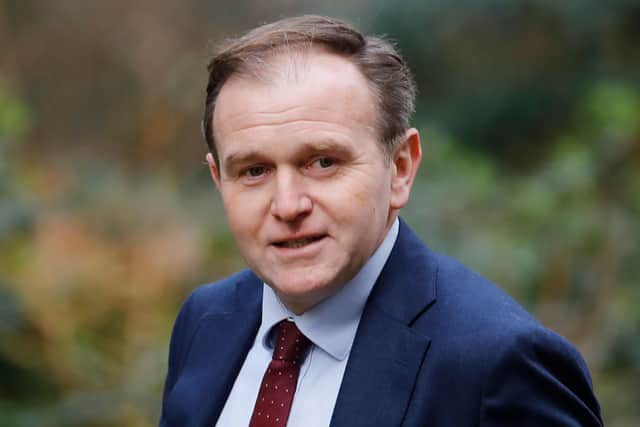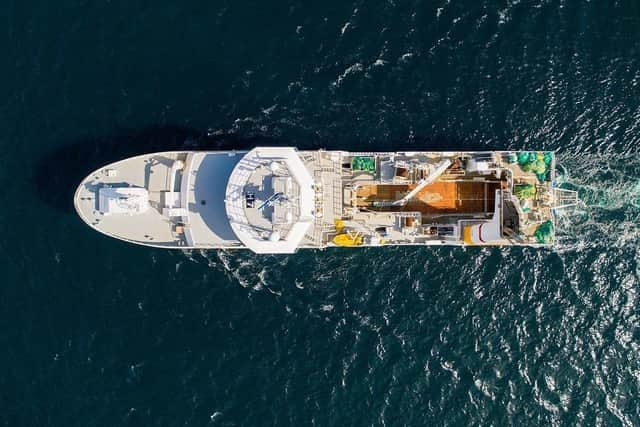George Eustice’s ‘empty’ words on fishing – Yorkshire Post Letters


IN his opinion piece (The Yorkshire Post, January 24) George Eustice asks for comments on the Joint Fishing Statement prepared by the UK governments.
Advertisement
Hide AdAdvertisement
Hide AdSince the consultation closes on April 12, and I am concerned the government may be floundering, I have set to and began by asking myself what the statement would say about the sustainability of our fishing practices.


Usefully, on page 67, is a definition of ‘Sustainable fishing’. It tells me that in sustainable fishing “environmental, economic and social considerations are appropriately balanced”.
This is not clear – where does the appropriate balance point lie? Does it prioritise our environment, or our economy or – ignoring environmental and economic factors – the social importance of fishing as an industry historically important in our region?
Further on in sustainable fishing “short term socio-economic decisions should not significantly compromise the long-term health of the marine environment”.
Advertisement
Hide AdAdvertisement
Hide AdAnd this seems even more worrying. The statement accepts ‘short-term decisions’ will be allowed to ‘compromise the long term health of the marine environment’. What ‘significantly’ would be I am not aware, but considering that we hope to live on the planet for many generations to come this sentence would only be sustainable with that word left out. In any consultation it is important that terms are clearly defined, and Defra needs to be clear about how much damage to the marine environment is considered acceptable.


From: Pauline Allon, Ilkley.
I HAVE just read George Eustice’scolumn in which he emphasises that the Government has, because of Brexit, taken back control of UK waters and has created a fishing and shellfish industry that we can be proud of as the first UK fisheries legislation for over 40 years.
Yet since leaving the EU, our fishing and shellfish industry is struggling and only represents 0.12 per cent of the UK economy.
Look at the fishing fleet in Hull, it is non-existent. The UK’s departure from the EU was supposed to reinvigorate the fishing and shellfish industry.
Advertisement
Hide AdAdvertisement
Hide AdThis was the reason the fishing industry voted for Brexit, but instead it forced the Kirkella, the long distant trawler, registered in 2018, to cease operating because it could no longer fish off the coasts of Norway and Greenland, largely due to Brexit and the dismal fisheries deal the UK negotiated with the EU, but also due to the 20th century cod wars and global warming. The Kirkella now lies idle along with many other fishing vessels up and down the country – does this sound like a fishing industry we can be proud of?
Support The Yorkshire Post and become a subscriber today. Your subscription will help us to continue to bring quality news to the people of Yorkshire. In return, you’ll see fewer ads on site, get free access to our app, receive exclusive members-only offers and access to all premium content and columns. Click here to subscribe.
Comment Guidelines
National World encourages reader discussion on our stories. User feedback, insights and back-and-forth exchanges add a rich layer of context to reporting. Please review our Community Guidelines before commenting.